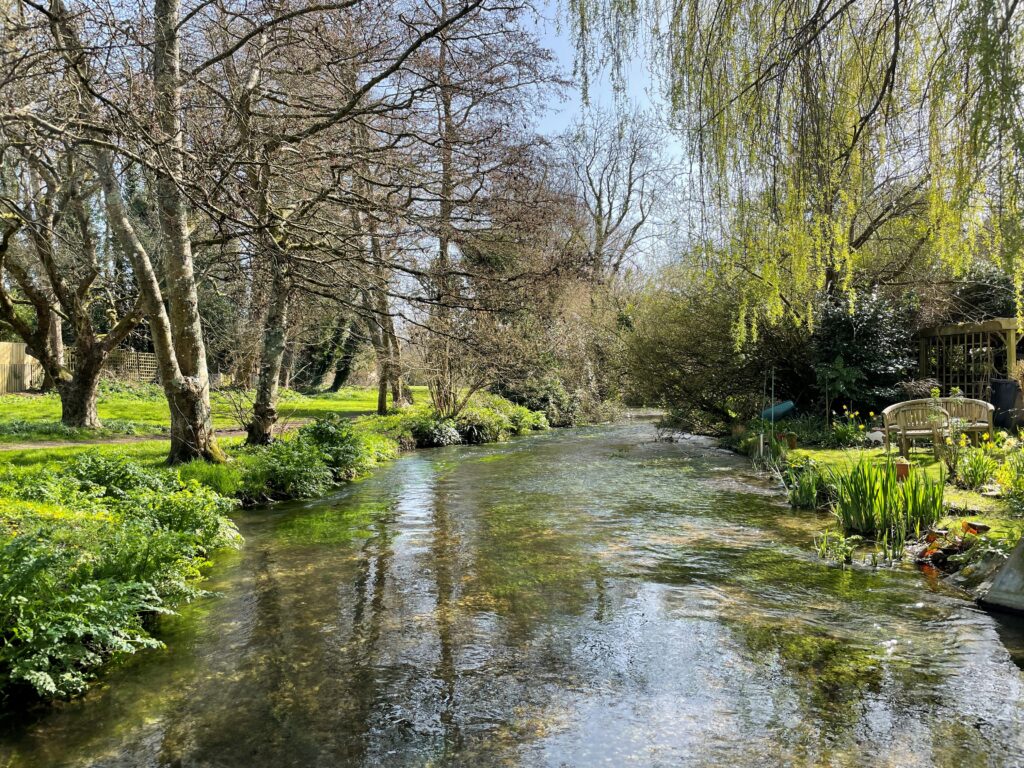
DOMVS estate agency in Bere Regis has been selling and letting homes since 2005 via its nearby Wareham office, on South Street. DOMVS has a good selection of property to buy in Bere Regis, as well as property to rent in Bere Regis and provides a choice of three easy ways to get a free valuation for either selling or letting your property.
Properties in Bere Regis had an overall average price of £399,000 over the last year.
The majority of sales in Bere Regis during the last year were terraced properties, selling for an average price of £305,400. Detached properties sold for an average of £492,333, with semi-detached properties fetching £461,667.
Overall, sold prices in Bere Regis over the last year were 25% up on the previous year and 14% up on the 2020 peak of £349,438.
Source: Rightmove. Last updated 03/24
Little more than 10 minutes’ drive from Wareham and just under 20 minutes’ from the county town of Dorchester is Bere Regis, a large village with a thriving community. Besides a local store, post office, hairdresser, petrol station, village hall and two popular public houses, the community also supports a mobile library and myriad clubs and societies ranging from bell ringers, quilters, a gardening club and WI to walkers, a wildlife group and Beavers, Cubs and Scouts. The village also benefits from a sports club and playing field, home to junior and adult cricket and football teams. The adult men’s team, Bere Regis FC, is one of the oldest in England, established in 1885.
The history of Bere Regis dates back far further than its football team; evidence even of Palaeolithic human activity exists in the surrounding parish. Located on the banks of the Bere Stream – a tributary of the River Piddle – the village as we know it today is believed to have begun life as a Saxon settlement, growing to ‘town’ status by the 13th Century. Sadly, Bere Regis has since lost most of its historic buildings to extensive fires, the worst of which took place in 1633, 1717 and 1788 (never fear, today’s village has a fire station!). Most of the oldest remaining homes are Georgian and Victorian, though parts of the parish Church of St John the Baptist date from the 12th Century.
Also of note is Bere Regis’ connection to world-famous Dorset author Thomas Hardy. Featured in several of his novels, the village of ‘Kingsbere’ is believed to be based upon Bere Regis. Kingsbere’s most prominent appearance is in ‘Tess of the D’Urbervilles’, the title character of which also has a name inspired by former village residents, The Turbervilles.
"*" indicates required fields
Alison’s qualities set her apart as an estate agent. Her negotiation skills are outstanding and her approachability and effervescent personality are hard to match.
Katie’s passion for property started at a young age; being brought up in the countryside within the farming community, she has always been familiar with the lettings world. Katie has multiple years’ experience and takes great pleasure in providing a high-level service, ensuring that the rental process is stress free for both Landlords and tenants. Outside of work, Katie enjoys watching rugby and supporting her family’s charity.
Trisha’s experience in estate agency spans over 30 years, her enthusiasm and love of the job has given her the opportunity to build relationships with vendors and applicants alike. She is exactly the person you would want to successfully look after your property.
Shannon’s professional, caring nature is at the core of everything she does. With 13 years’ customer service experience, she has a passion for providing only the best service to all her clients. Shannon’s extensive local knowledge makes for meaningful client relationships and smooth, successful sales. At the end of a great week, Shannon enjoys spending time with family – and a glass of something chilled.
Having 35 plus years in estate agency gives Jon a quiet self-assured confidence. He uses his experience and patience to provide informed advice.
Tina is efficient, focussed, resourceful and helpful. Her experience in estate agency and international work experience have given her the empathy to help people along their property journey.
As a go-between for all parties ensuring the sale seamlessly reaches completion, Marcus plays a key role at DOMVS. His healthy balance of tenacity and pressure ensures each transition has the best chance of success.
©2023 Domvs Estate Agents
Terms of Use | Privacy Policy & Notice | CMP Certificate | Member Standards | Member of The Guild
Built by The Property Jungle
Our Privacy Policy and Notice describes how we use your data, who we might share it with and what rights you have. This site is protected by reCAPTCHA and the Google Privacy Policy and Terms of Service apply.